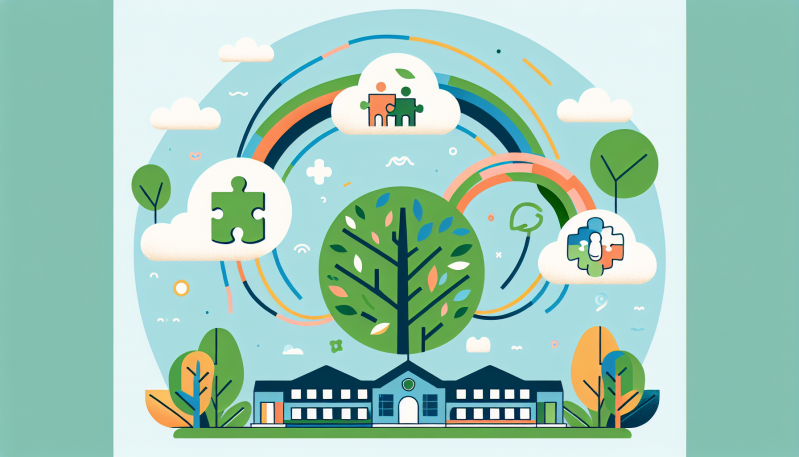As an Anti-Bullying Program Coordinator with a wealth of experience in addressing school climate issues, I have seen firsthand the transformative power of empathy education. In today’s achievement-oriented society, it’s crucial that we don’t lose sight of the fundamental human skills that pave the way for a harmonious and supportive learning environment – empathy being one of the most significant.
Why Empathy Education?
Empathy, the ability to understand and share the feelings of another, is a cornerstone of emotional intelligence. By cultivating empathy in students, we encourage a mindset that values collaboration over competition and kindness over conquest. This approach can revolutionize school environments by fostering a culture where every child feels seen, heard, and valued, irrespective of their background or abilities.
Envisioning an Empathy Curriculum
Integrating an empathy curriculum into schools should be a nuanced process. It involves more than just occasional discussions about feelings; it requires a scaffolded program that builds empathy skills progressively. A practical curriculum might include:
Storytelling and role-playing exercises that allow students to step into someone else’s shoes.
Service-learning projects that connect classroom learning with real-world issues.
Mindfulness practices that cultivate self-awareness and compassion.
Restorative justice practices that focus on repairing harm and rebuilding relationships rather than punishment.
Benefits of Empathy Education
When students learn empathy, the effects ripple out across their interpersonal relationships. Bullying incidents decrease because students become more attuned to the emotional states of their peers and the consequences of their actions. Additionally, empathy promotes a sense of belonging, which is an antidote to loneliness and isolation.
The Impact on Mental Health and Academic Performance
The mental health benefits of empathy education are profound. Students who feel understood and supported are more likely to engage with learning and persist through challenges. Moreover, empathy reduces stress and anxiety, leading not only to healthier minds but also to improved academic outcomes. When students are emotionally intelligent, they can better manage their emotions, leading to better concentration and focus in the classroom.
Empathy Education in Action: A Personal Reflection
In my career, I have witnessed how empathy education can change school dynamics. At one school, after implementing a comprehensive empathy program, we observed a remarkable reduction in disciplinary referrals. Students began to resolve conflicts amongst themselves, demonstrating increased emotional maturity and responsibility.
Another school cultivated a ‘buddy system’ where older students mentored younger ones, creating a cascading effect of empathy through the grade levels. This mentorship not only reduced feelings of loneliness but also built leadership skills among the older students.
Empowering the Next Generation
Creating an empathetic school climate is not solely the job of teachers. It requires a whole-community approach. Parents, staff, and educational influencers must collaborate to model empathy in actions and words. Workshops for parents on emotional intelligence and its importance, professional development for staff on empathy-building techniques, and student-led initiatives are all critical components of a successful empathy education program.
By integrating empathy education into the curriculum, we nurture not only the academic success of our students but also their emotional well-being. We equip them with the skills they need to navigate their personal relationships and the wider world with understanding, kindness, and compassion. Ultimately, by prioritizing empathy, we lay the foundation for a more inclusive, peaceful, and empathetic society.
Let’s envision and work towards a future where every child emerges from school not just with a diploma, but with a heart well-equipped to lead with empathy and kindness. The time to cultivate compassion is now, and it starts in our schools.



